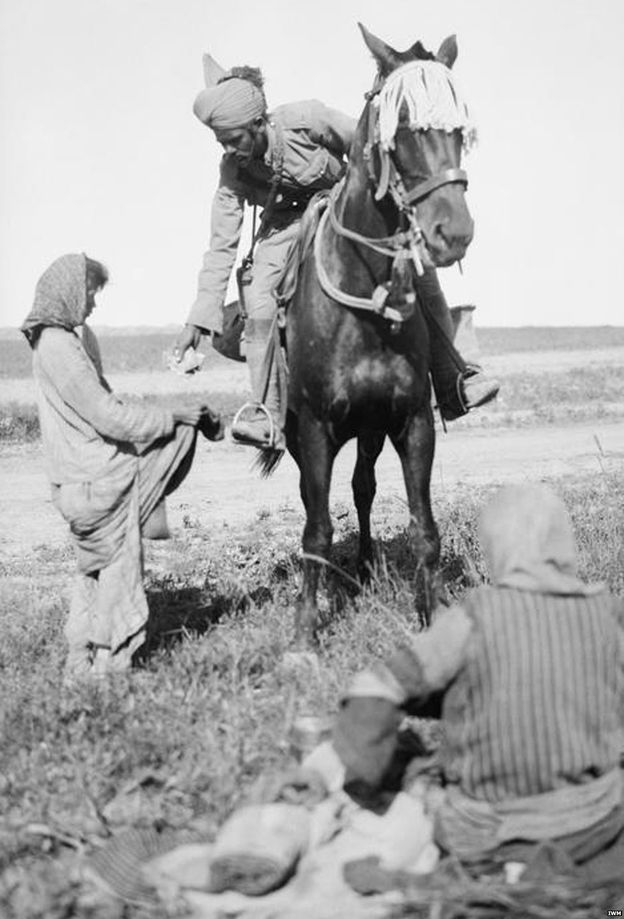
Figure 1 – Indian Cavalryman handing rations to a Christian girl during the First World War. In the public domain in the United States.
Today is Independence Day in the United States and we celebrate it as John Adams anticipated in a letter to his wife Abigail over two centuries ago:
“The second [sic] day of July, 1776, will be the most memorable epoch in the history of America. I am apt to believe that it will be celebrated by succeeding generations as the great anniversary festival. It ought to be commemorated as the day of deliverance, by solemn acts of devotion to God Almighty. It ought to be solemnized with pomp and parade, with shows, games,sports, guns, bells, bonfires, and illuminations, from one end of this continent to the other, from this time forward forevermore.“
I am always moved by this day and plan to celebrate it with friends watching the local parade: the cub scouts, brownies, and girl scouts and, of course, the minutemen. The American Revolution was profound in many ways. Its roots date back to Runnymede five hundred years earlier. It was arguably the first war against imperialism, and in that context, one can argue that the death knell of European imperialism was sounded on August 15, 1947 with the lowering of the Union Jack and the raising of the Indian flag at the Lahore Gate of the Red Fort in Delhi, India. Well maybe not so much or not so fast. In many respects imperialism still thrives in the world. Yet there is continuity and forward motion.
I read yesterday a sobering account of the Indians who fought for the English during World War I and then were forgotten by both the English and their own countrymen. This essay is by Shashi Tharoor is a former minister in India’s Congress party and a former UN diplomat. It contains many wonderful photographs (like that of Figure 1) of the Indian Army in this war, who out of duty fought to preserve the very empire that oppressed them And they expected that victory would lead to an independent India – not so fast.
Tharoor makes the point that The Great War “also involved soldiers from faraway lands that had little to do with Europe’s bitter traditional hatreds.” The role and sacrifices of Australians, New Zealanders, Canadians and South Africans have been celebrated for some time in books and novels, and even rendered immortal on celluloid in award-winning films like Gallipoli. Of the 1.3 million Indian troops who served in the conflict, however, you hear very little.” In part, this is because, to the Europeans, only white lives mattered. Fortunately, we have no more of that sentiment.
Profoundly and, I think, significantly Tharoor points out that “the great British poet Wilfred Owen (author of the greatest anti-war poem in the English language, Dulce et Decorum Est) was to return to the front to give his life in the futile First World War, he recited [Rabindranath] Tagore’s* Parting Words to his mother as his last goodbye. When he was so tragically and pointlessly killed, Owen’s mother found Tagore’s poem copied out in her son’s hand in his diary:
When I go from hence
let this be my parting word,
that what I have seen is unsurpassable.
I have tasted of the hidden honey of this lotus
that expands on the ocean of light,
and thus am I blessed
—let this be my parting word.
In this playhouse of infinite forms
I have had my play
and here have I caught sight of him that is formless.
My whole body and my limbs
have thrilled with his touch who is beyond touch;
and if the end comes here, let it come
– let this be my parting word.”
Let us think of this on Independence Day. Let us think of free men and women on the Fourth of July, and let us think most deeply of those who are not yet free.

Touche! –
rajn